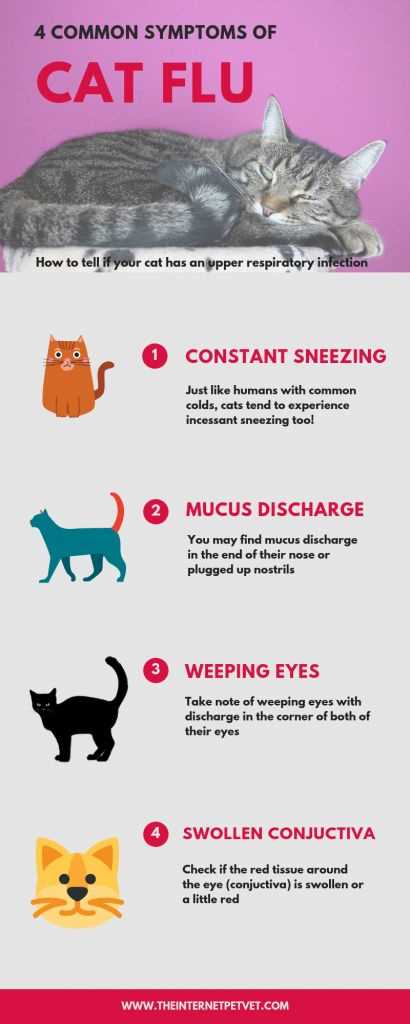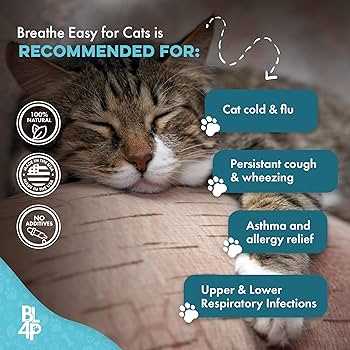Keep your companion warm and cozy. A soft blanket or a favorite spot in the sun can provide comfort and warmth, which is essential for recovery. Ensure the temperature in your space is pleasant, avoiding drafts that could worsen their condition.
Hydration is key. Encourage your furry buddy to drink plenty of water. Adding a splash of low-sodium chicken broth to their bowl can make hydration more appealing. If they’re not drinking enough, consider offering ice chips or wet food to increase their fluid intake.
Monitor their eating habits closely. If your pet shows a lack of appetite, try offering small portions of their favorite foods. Warm it slightly to enhance the aroma, which might entice them to eat. If they continue to refuse meals for more than a day, consult a veterinarian.
Keep an eye on their symptoms. Observe any changes in behavior, such as lethargy or excessive sneezing. If things worsen or don’t improve within a few days, reaching out to a vet is a wise decision. Your companion’s health should always come first.
Identifying the Symptoms of a Feline Upper Respiratory Infection
Look for sneezing as a primary indicator. If I’m sneezing more than usual, it’s a sign something’s off. Coughing can also occur, so pay attention to any unusual sounds coming from my throat.
Watch for nasal discharge. A clear or colored fluid from my nose can signal an issue. If it’s thick or greenish, it’s more concerning. Likewise, watery eyes might indicate discomfort or illness.
Loss of appetite is another red flag. If I’m not interested in my favorite treats or meals, it’s worth investigating. Weight loss can follow if I continue to eat less.
Monitor my energy levels. If I’m more lethargic than normal, it may point to an underlying problem. I should be engaging in my playful antics, and a decrease in activity could indicate I’m feeling unwell.
Check my breathing. If I seem to be breathing rapidly or with difficulty, that’s a clear signal. Normal breathing should be quiet and effortless.
Finally, listen for changes in my vocalizations. If I’m meowing differently or more frequently, it might be a way of expressing discomfort or distress.
Creating a Comfortable Environment for Recovery

Ensure a quiet space where I can rest without disturbances. A cozy blanket or a soft bed in a secluded corner works wonders for my comfort. Keep noise levels down, as loud sounds can be stressful and hinder my healing.
Maintain a warm atmosphere. A gentle source of heat, like a heating pad on low, can help soothe my body. Just make sure I can move away if it gets too warm. Adequate warmth is crucial for my recovery.
Hydration is key. Place fresh, clean water nearby so I can sip whenever I need. If I’m feeling under the weather, I might prefer a shallow bowl; it’s easier for me to access. Wet food can also help keep me hydrated, so consider offering that as well.
Minimize exposure to drafts and cold surfaces. Check windows and doors to ensure they’re properly sealed. A draft-free environment promotes a quicker return to health.
Consider using a humidifier. Increasing moisture in the air can ease any discomfort I may have in my nose and throat. This can make breathing a lot easier for me.
Keep my litter box clean. A tidy area is essential for my well-being. If I’m feeling unwell, I might hesitate to use it if it’s not spotless. Regularly changing the litter can help ensure I stay comfortable.
Limit visitors. Too many new faces can be overwhelming. Allowing only close family to interact with me will help me feel more at ease during this time.
Finally, provide gentle companionship. A soft voice and gentle strokes can be incredibly comforting. Just being nearby can help me feel secure and loved as I recover.
Providing Proper Hydration and Nutrition
Staying hydrated is key for recovery during illness. I recommend offering fresh water at all times. If you’re concerned about my fluid intake, try these methods:
- Use a pet fountain; the running water can attract me more.
- Add a bit of low-sodium chicken broth to my water. It enhances flavor and encourages drinking.
- Offer wet food; the moisture content helps keep me hydrated.
Nutrition is equally important. Focus on high-quality, easily digestible meals. Here are some suggestions:
- Choose canned food with a high protein content and low fillers.
- Consider warming my food slightly; it enhances aroma and makes it more appealing.
- Introduce small, frequent meals instead of one large portion to maintain my energy levels.
Monitor my eating habits. If I seem uninterested in food, consult a vet for alternatives or supplements that may stimulate my appetite. Keeping me nourished and hydrated will aid in my recovery process.
Using Humidifiers to Ease Breathing

For relief, consider using a humidifier in your space. Moist air can reduce irritation in the respiratory tract, making it easier to breathe. Here are some practical tips:
Choosing the Right Humidifier
- Opt for a cool-mist humidifier. It’s safer and helps maintain a comfortable temperature.
- Ensure it has a large enough tank to run continuously, especially during night hours.
- Look for models with built-in hygrometers to monitor humidity levels.
Setting Up the Humidifier
- Place it in a small, enclosed space where I like to rest, ensuring I can benefit from the moisture.
- Keep it at a distance to prevent me from getting splashed directly.
- Regularly clean the device to avoid mold and bacteria buildup.
Maintaining humidity levels between 30% and 50% is ideal for comfort. Adjust settings based on how I react–if I seem more relaxed, you’re on the right track!
Administering Over-the-Counter Medications Safely
Always consult a veterinarian before giving any medication. Some products designed for humans can be harmful, even at small doses. Here’s a table outlining common over-the-counter options and their safety for use in felines.
| Medication | Safe for Felines? | Notes |
|---|---|---|
| Benadryl (Diphenhydramine) | Yes, in small doses | Consult a vet for correct dosage based on weight. |
| Tylenol (Acetaminophen) | No | Toxic to pets; can cause severe liver damage. |
| Advil (Ibuprofen) | No | Highly toxic; can lead to kidney failure. |
| Zyrtec (Cetirizine) | Yes, in moderate amounts | Check with your vet for appropriate dosage. |
| Claritin (Loratadine) | Yes, in limited doses | Ensure it’s plain; consult a vet for dosage. |
Monitor for any adverse reactions after administration. If unusual behavior or symptoms arise, seek veterinary attention immediately. Keep medications out of reach to prevent accidental ingestion. Always prioritize natural remedies and supportive care as the first line of assistance.
Monitoring Your Feline Friend’s Condition and Behavior
Keep a close eye on my energy levels. If I suddenly become less active or prefer to stay in one spot, it could indicate something’s off. Tracking my playtime and interactions helps gauge my well-being.
Observing Symptoms
Pay attention to any changes in my eating habits. If I skip meals or show disinterest in treats, that’s a sign to take note of. Regularly check for nasal discharge or sneezing; these are clear indicators of my health state.
Behavioral Changes
Monitor my grooming habits as well. An unkempt coat or excessive licking can suggest discomfort. If I start hiding or acting more withdrawn than usual, it’s crucial to assess the situation. Documenting these observations can be helpful for any future discussions with a veterinarian.
When to Consult a Veterinarian for Further Care
If my symptoms persist for more than a few days, it’s time to seek professional help. Severe signs such as difficulty breathing, refusal to eat, or excessive lethargy indicate that medical attention is necessary. Additionally, if I develop a high fever, persistent coughing, or nasal discharge that appears green or yellow, don’t hesitate to contact a vet.
Regular monitoring is key. If you notice any sudden changes in my behavior or if I seem to be in pain, it’s crucial to consult a veterinarian. Early intervention can prevent complications and ensure a swift recovery.
Remember to keep my living area clean and comfortable. This might include using the best absorbant pellets for dog litter for hygiene. If I continue to show signs of distress, don’t wait. Seeking professional guidance is always a wise decision.
Additionally, if you’re unsure about any over-the-counter medications, it’s better to ask a vet before administering them. Remember, my health is paramount, and a veterinarian can offer tailored advice and treatment options to ensure I get back to my playful self.
Lastly, if you’re also dealing with flea issues while caring for me, consider checking out the best flea products for cats to keep me comfortable and pest-free during my recovery.






